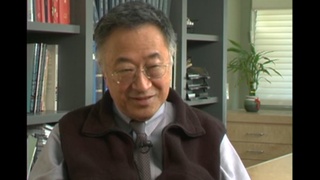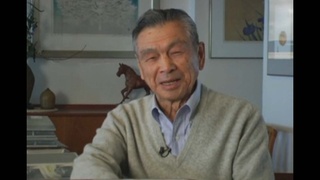Interviews
Resettling in Chatham
But it was tough, at the beginning. And I can remember overhearing a conversation of Jack Nishizaki, and he was an older Nisei gentleman at that point. He came from a large family and he was talking with his brothers - and now Jack is a black belt Judoist. They were talking, whispering. He said, “I was attacked by a bunch of guys that worked. They called me a dirty Jap, go home, and they tried to do a number. So I did a--” And described this move, and managed to disarm this violent attack and lay them out.
Well, I mean, shit. I had my own battles, going to and from school with much less skill and even lesser glory. It was difficult. Even little things, like I remember my father was able to buy a house. He was one of the first people to buy a house, and I grew up in the black ghetto of Chatham, the poor part of town. Chatham is rather unique in having such a thing as a poor black community because Chatham was once the terminal of the Underground Railroad. So growing up, I played with my Nisei friends and the black kids in the neighborhoods who were the descendants of runaway slaves.
Date: February 9, 2011
Location: California, US
Interviewer: Patricia Wakida, John Esaki
Contributed by: Watase Media Arts Center, Japanese American National Museum










